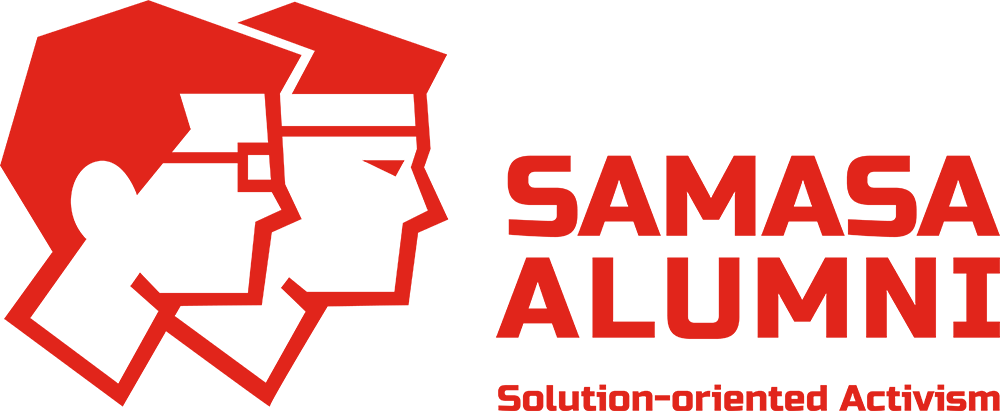
Josemari “Kristo” Enriquez
January 15, 1961 – Missing since July 27, 1988
Josemari Enriquez, also known as Joey, Paulo, and Kristo, was a student activist and community organizer, first at the University of the Philippines in the 1980s, then in the communities of Metro Manila, until his disappearance in 1988.
Born in 1961, Joey attended high school at the Don Bosco-Mandaluyong and went to the University of the Philippines to study engineering. He eventually gave up his studies, balancing the roles of a full-time activist and community organizer and family man, as a father to his two-year-old daughter.
His sisters recall him as a great kuya (older brother) who showed affection in a gruff but endearing way. At UP, Joey was drawn into activism and into the underground movement. He became a full-time cadre and held an important position. Putting his university education on hold, he married a fellow activist, had a child, and continued his underground work. His comrades remember him as a bright and good leader. They gave him the nom de guerre Pao and Kristo because of his resemblance to the image of Christ.
One of his comrades shared, “I always thought he was pretty damn smart. Talented, too, and he could produce a mean, expressive sketch or drawing in a few minutes. Constantly creative, he could invent games and make mini-boats out of blankets, so we could sing “We all live in a yellow submarine”. He seemed to have the answer to all questions. But he was mostly introspective. He has a way of looking at things differently. Very uncommon. I thought he was just trying hard to be unordinary. But he was consistent.”
Joey’s work with the people’s movement necessitated him leaving his middle-class existence and “wallow” in the same squalor that defines the lives of the masses he has pledged to serve. Former comrade Bong Ramilo Darwin recalled that one of these UG (underground) houses was on the bank of a polluted creek near West Avenue, where late nights and early mornings were cold. Smelly too, and mosquito-ridden. To cope, he taught comrades the finer points of using the malong, demonstrating how to get into one, wrapped head-to-foot like a human lumpia to keep warm, keep out the stink of the “imburnal” or creek, and protect oneself from mosquito bites.
Despite the depressing situation around him, it was a truly magnificent feat that he consistently retained his love for music and positive outlook on life. Darwin adds, “We all liked singing and playing activist songs, but we’re careful not to do so in these houses so as not to give any signs that we were activists and keep the houses safe from surveillance and raids. So we sang and played popular and “legal” songs instead. In one UG house somewhere near Welcome Rotonda, Paulo often played and sang “Plastic Jesus” and “Running on Empty”. It was then and there that Paulo introduced me to Jackson Browne, and reminded me that not all American rock stars and rock songs are instruments of American imperialism. When I hear Jackson Browne, I hear Paulo.”
He influenced his sisters in joining the movement. In the book Tibak Rising, his younger sister, Jean Enriquez, has this to say of her revered “kuya”:
“Ipinagmamalaki kong ‘Kristo’ ang tinawag ng mga kasama at kaibigan sa kanya. Di lamang sa anyo, ngunit sa sakripisyo. Alam kong sinikap nyang sundin ang yapak ng unang humawak ng pangalang iyon. Payak, hindi kumukuha ng atensyon, mapanuri, may pagkiling sa dukha, may pagkiling sa paglikha — lalo na sa musika – malalim, mapagmahal (bagama’t hirap itong ipakita).
Maikli ang naging buhay ng kuya ko subalit nananatili ang kanyang epekto. Hindi lang sa mga pamayanang mapalad niyang na-organisa, kundi sa akin. Patuloy akong natututo sa kanyang katahimikan, katapangan, pagiging malalim, mapagkumbaba, bukas, at makatuwiran. Mali man ang kilusang ipinagtanggol niya, hindi ko iiwanan ang mas dalisay niyang paninindigan – para sa katarungan.”
He became one of the countless victims of “Operation Olympia”, one of the purges that saw comrades suspecting fellow comrades, eventually killing them on orders of the underground Left’s upper hierarchy. He disappeared without a trace in 1988. Unofficial accounts said that Kristo was kidnapped, tortured until he died, and his body dumped in an unknown grave. The Left owned up to his death but refused to give his remains to his family, despite insistent demands from family, friends, and former comrades.
His daughter, Bonini, made a film about him called “Wer Na U?”.
Historical timeline and milestones
- Studied at the College of Engineering in UP
- Left the University to be a full-time community organizer
- 1988: Abducted and disappeared
As remembered by family and friends
Remembering Paulo (Kristo)
by Bong Ramilo Darwin, Australia, July 25, 2008
Thank you for the privilege of sharing some thoughts about Paulo. While preparing my contribution to his tribute, I was not sure if I should talk about my personal reminiscences of Paulo, for fear of this piece becoming about me rather than about him, or for fear of trivialising his memory by focusing on the everyday experiences of our shared activist days. I decided to talk about the personal and the everyday nonetheless because these remind me of how meaningful Paulo is to my own life. These little things add a unique dimension to Paulo’s memory, so that he lives on in my heart as the real, interesting, and unique friend and comrade that he was, aside from being the much-loved and much-missed leader and hero that he is to us all.
Among other things, I remember Paulo because: We were both Bosconians. I was a year ahead of him and while we did not meet in high school, we shared fond and not-so-fond memories of our years at Don Bosco Mandaluyong. I continue to have links with Don Bosco, mainly through an e-group of former schoolmates. When I remember Don Bosco, I remember Enriquez, my fellow Bosconian, Class of 1977.
We both went to UP Diliman. He built on the technical training we both had in high school by studying Engineering, while I would not. We met up anyway, as activists organising students and eventually non-academic workers and community residents too. We hung out at Vinzon’s, and at the Second Floor of AS, even if we weren’t supposed to. We also hung out at White House, Ricarte, and other campus communities. I also continue to have links with UP Diliman, through family and friends, and through groups like Tibak. When I am there, or whenever LU is mentioned, I particularly remember Kristo, my fellow activist and a superior community organiser.
We both stayed in UG houses. We all liked singing and playing activist songs, but were careful not to do so at these houses so as not to give any signs that we were activists to keep the houses safe from surveillance and raids. So we sang and played popular and “legal” songs instead. At one UG house somewhere near Welcome Rotonda, Paulo often played and sang “Plastic Jesus” and “Running on Empty” (among many other pieces). It was then and there that Paulo introduced me to Jackson Browne, and reminded me that not all American rock stars and rock songs are instruments of American imperialism. When I hear Jackson Browne, I hear Paulo.
Another UG House was on the bank of a polluted creek near West Avenue. It would be cold late at night and early morning there. And smelly too, plus we had mosquitoes. We would learn the finer points of using the malong there. Paulo would demonstrate how you had to get into a malong, wrapped head-to-foot (like a human lumpia), to keep warm, to keep out the stink of the imburnal/creek, and to keep mosquitoes away. We would also, discretely, talk about how a malong protects against groping hands, a practice that allegedly happened at live-in trainings and some UG houses of the day…but I won’t go into more detail. So, malongs will always remind me of Paulo.
We were deployed by the movement out of LU at the same time, around 1983. Our last unit meeting together was in Baguio. It was a long and painful discussion. Many of us disagreed with the decisions of the higher organs and there were heated debates. Paulo, as always, was calm and cool. He was always calm and cool. I had never seen him overtly angry. After the session where the old unit was dissolved, Paulo, Larry, and I left the meeting, and headed for Manila and new assignments. We had some time before the next Pantranco bus, so we found a quiet place along Session Road, above Pancake House I think, and had beers – Gold Eagle, as nothing else was available. We were sad, and anxious about the future. Paulo was still calm and cool (even if he had to drink Gold Eagle). We were good soldiers, but he was perhaps the better one at that time, determined to get on with the job with minimum fuss and acrimony. I think of cool Baguio, I remember Paulo.
I don’t drink much anymore, but when I do, it is not Gold Eagle that I drink, but I remember Paulo whenever I do drink some beer. And when I think of, or get together with Larry and friends and comrades of mine and Paulo’s, we remember him, and we talk of him, and talk of how we can find him for his family’s sake and for our own sake too. We did not spend very many years together, but they were memorable years. When I think of those years, and I think of those years constantly, I remember friends and comrades of those days, and I remember Paulo especially.
I had wanted to write a song for this occasion, but it was not easy. I have not completed a song since 1992. I started one for Paulo for this tribute but did not complete it. That is a shame because Paulo loved music, he loved playing the guitar and singing. A song for him would’ve been a good tribute. I will continue trying to complete a song. I will try to make the first one I complete, the first since 1992, to be one for him.
This piece was read as a tribute for Paulo in 2008. It was originally published in The Nameless.
Email
[email protected]
Address
902 Filgarcia Tower
140 Kalayaan Avenue
Diliman, Quezon City
Address Line 03
Copyright 2024 © SAMASA Alumni | Created by Creative Coconut Ph

